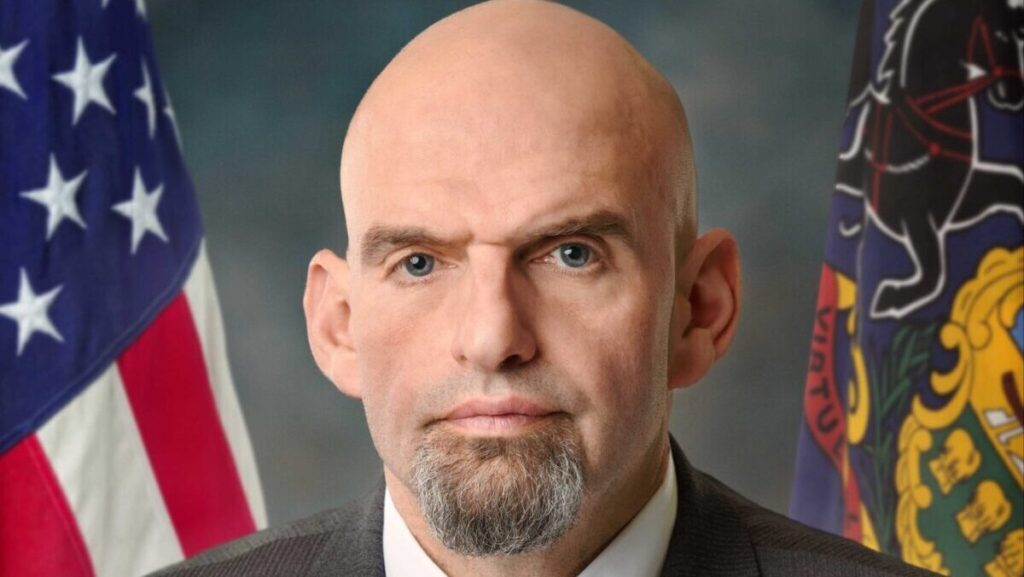Three weeks into a federal shutdown triggered when Senate Democrats declined a stopgap funding measure, Pennsylvania Sen. John Fetterman has stepped away from his party’s strategy and publicly refused to hold government services hostage. He made his position clear on television and social media, arguing that feeding hungry Americans and paying servicemembers, Capitol Police, and federal workers must come before partisan leverage. Fetterman repeatedly framed his choice as country over party and called for talks that avert further harm to families and essential services.
Washington is split, and most of the Democratic caucus has backed a hard line that led to the shutdown, but Fetterman has pushed back against that path. He told an interviewer he will prioritize the nation even if it costs him support inside his base, and he stressed the moral consequences of letting paychecks and benefits lapse. That stance has put him at odds with party leaders who have made obstruction a tactic rather than a last resort.
On a prime-time cable appearance, Fetterman was blunt about his principle and the stakes involved, telling the host, “I am always going to vote country over my party and if I pay a price within my base, that’s something I am willing to do,” and adding, “I’m not afraid to tell my truth and if I’m going to pay a penalty, I’m not afraid of that. It’s wrong to shut our government down.” Those are not hedged statements; they signal a senator who sees immediate human costs where others see leverage.
He reinforced that message where millions of Pennsylvanians live the consequences, pointing out that some 2 million residents in his state rely on the Supplemental Nutrition Assistance Program, SNAP. Fetterman framed his choices in concrete terms: “For me, it’s hungry Americans over party. Paying our military over party. Paying Capitol Police and federal workers over party. I choose country over party.” That public push forced a clearer spotlight on what a shutdown actually does to ordinary people.
When pressed further about health care subsidies and the Affordable Care Act, Fetterman told another network that he follows country, then party, and will not back shutting the government down amid chaos. “I follow country, then party, and it’s the wrong thing for the country. In a period of chaos, I refuse to vote to shut our government down,” he said, reiterating the point that disrupting services is not an acceptable negotiating tactic. He signaled openness to extending assistance while rejecting hostage politics.
On the subject of ACA subsidies specifically, Fetterman said he’d welcome talks to extend the tax credits but noted the legislative reality that those breaks were set to lapse. “I absolutely would love to have — I would love to have a conversation about extending the tax credits for health care, absolutely,” he said, and then added a pointed reminder of how the schedule was written. His line was that the expiration was not the result of opposition action alone but was part of the design the Democratic Party enacted when they set the timeline.
He did not shy away from blame, saying plainly that the subsidies “were designed to expire” and urging colleagues to negotiate an extension rather than weaponize an expiration against the broader budget. “But I would remind everybody, too, this was designed by the Democratic Party to expire at the end of the year. This is not something taken from anybody by the Republicans. That’s — they were designed to expire,” he said, pressing for a pragmatic conversation instead of brinkmanship. For him, the correct next step is negotiation, not a prolonged shutdown that punishes the vulnerable.
Fetterman has said this is a matter of institutional duty, not political theater, pushing back on any attempt to treat the federal budget as a bargaining chip. He made a public pledge alongside his other comments to avoid voting to close government doors, framing the obligation as part of Congress’s job. That insistence puts him at odds with party figures who prefer delay and leverage over compromise and continuity.
“It’s a core responsibility of Congress to maintain a functioning government and I refuse to hold it as hostage,” he went on to declare. The line is straightforward and aimed at a Washington accustomed to strategic brinksmanship: maintain essential services or bear the political and human cost. Fetterman’s position is simple — governance matters more than scoring points — and he’s willing to accept the intra-party consequences of that judgment.



